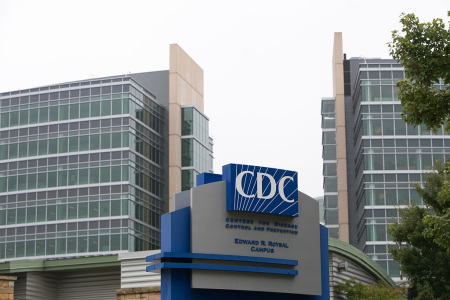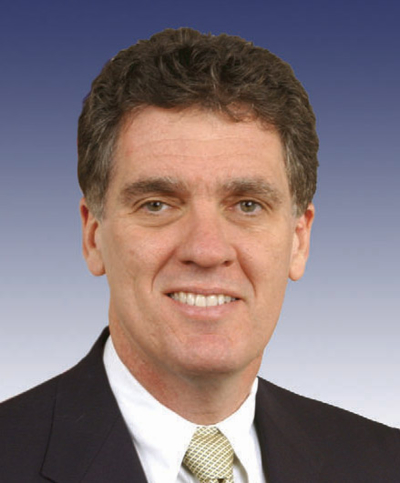Trump nominates author of federal pro-life protection to lead CDC

President-elect Donald Trump has nominated a staunch pro-life advocate to serve as the next director of the U.S. Centers for Disease Control and Prevention as the pro-life movement has expressed concern about his pick to lead the agency that oversees it.
In a statement Friday, Trump announced his nomination of former Rep. Dave Weldon, R-Fla., for the position of CDC director in his forthcoming administration.

Trump identified Weldon, who served in the U.S. House of Representatives from 1995-2009, as a “Medical Doctor for 40 years” and an “Army Veteran” who has “been a respected conservative leader on fiscal and social issues.”
“The current Health of Americans is critical, and CDC will play a big role in helping to ensure Americans have the tools and resources they need to understand the underlying causes of disease, and the solutions to cure those diseases,” Trump wrote. “As a father of two and a husband for 45 years, Dave understands American Family Values, and views Health as one of utmost importance. Dave will proudly restore the CDC to its true purpose, and will work to end the Chronic Disease Epidemic, and Make America Healthy Again.”
While Trump mentioned that Weldon “successfully worked with the CDC to enact a ban on patents for human embryos,” he did not mention the former congressman’s role in creating the Weldon Amendment that bears his name.
As explained on an archived version of the U.S. Department of Health and Human Service’s website, the Weldon Amendment was “originally passed as part of the HHS appropriation and has been readopted (or incorporated by reference) in each subsequent HHS appropriations act since 2005.”
The text of the Weldon Amendment states, “None of the funds made available in this Act may be made available to a Federal agency or program, or to a State or local government, if such agency, program, or government subjects any institutional or individual health care entity to discrimination on the basis that the health care entity does not provide, pay for, provide coverage of, or refer for abortions.”
Proponents say the Weldon Amendment is a conscience protection to ensure that healthcare providers do not have to perform abortions if doing so goes against their deeply held religious beliefs. It has been targeted for elimination by congressional Democrats in recent years.
While a spending bill approved by the Democratic-controlled U.S. House of Representatives during the first year of the Biden administration did not contain the longstanding rider, the evenly divided U.S. Senate restored the conscience protections of the Weldon Amendment in its version of the bill.
Trump’s selection of Weldon to lead the CDC comes amid concerns within the pro-life movement about his nomination of Robert F. Kennedy Jr. to lead HHS, which oversees the CDC.
Former Vice President Mike Pence, who served alongside Trump during his first administration, released a statement describing the RFK Jr. pick as “an abrupt departure from the pro-life record of our administration” that “should be deeply concerning to millions of Pro-Life Americans who have supported the Republican Party and our nominees for decades.”
“For the majority of his career, RFK Jr. has defended abortion on demand during all nine months of pregnancy, supports overturning the Dobbs decision and has called for legislation to codify Roe v. Wade,” Pence warned, referring to the respective U.S. Supreme Court decisions determining that the U.S. Constitution does not contain a right to abortion and the previous ruling that established a right to abortion nationwide.
Pence expressed concern that Kennedy would be the most pro-abortion “Republican appointed secretary of HHS in modern history.” He urged the U.S. Senate to “reject this nomination and give the American people a leader who will respect the sanctity of life as secretary of Health and Human Services.”
The fate of both Weldon and Kennedy now lies in the hands of the U.S. Senate.
In the forthcoming 119th U.S. Congress, Republicans are slated to hold the majority with 53 Senate seats, while Democrats will have 47 seats. The confirmation of both cabinet nominees requires the support of a simple majority of 51 senators, meaning that they could easily secure the votes required even if they only receive support from Republican senators. Weldon is expected to face an easier path to confirmation than Kennedy.
Ryan Foley is a reporter for The Christian Post. He can be reached at: ryan.foley@christianpost.com





















